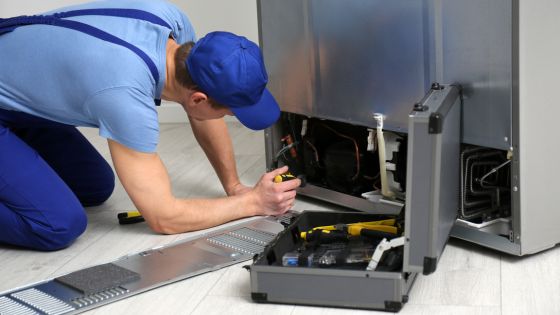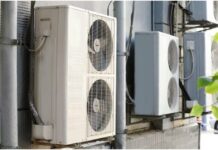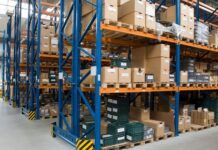In commercial settings, refrigeration systems are vital for preserving perishable goods, maintaining food safety, and ensuring optimal product quality. As per experts like JD Refrigeration to keep these systems running smoothly and efficiently, regular maintenance is essential. In this blog post, we will explore the importance of commercial refrigeration maintenance and its impact on businesses. From preventing costly breakdowns to maximizing energy efficiency and prolonging the lifespan of equipment, discover why prioritizing regular maintenance is crucial for businesses that rely on commercial refrigeration.
Preventing Costly Breakdowns and Repairs:
Regular maintenance of commercial refrigeration systems helps identify and address potential issues before they escalate into costly breakdowns. During maintenance visits, refrigeration technicians can detect and resolve minor problems such as worn gaskets, refrigerant leaks, or faulty components. By addressing these issues promptly, businesses can avoid unexpected system failures, costly repairs, and the potential loss of valuable inventory. Proactive maintenance is far more cost-effective than reactive repairs.
Maximizing Energy Efficiency:
Commercial refrigeration systems consume a significant amount of energy, making energy efficiency a top priority for businesses. Regular maintenance plays a crucial role in optimizing energy efficiency. Cleaning condenser coils, checking refrigerant levels, and ensuring proper airflow can significantly improve the system’s energy performance. Well-maintained refrigeration equipment operates more efficiently, reducing energy consumption and lowering utility bills. By investing in maintenance, businesses can reap long-term savings through improved energy efficiency.
Preserving Food Safety and Quality:
Commercial refrigeration systems are responsible for storing perishable goods, and maintaining food safety and quality is paramount. Regular maintenance ensures that refrigeration units operate at the correct temperature and maintain consistent cooling throughout. Technicians can verify that thermostats, defrost cycles, and temperature controls are functioning properly. This helps prevent fluctuations in temperature that could compromise food safety and lead to spoilage. By prioritizing maintenance, businesses can uphold the highest standards of food safety, protecting their reputation and ensuring customer satisfaction.
Extending Equipment Lifespan:
Commercial refrigeration systems are significant investments for businesses, and extending their lifespan is crucial for maximizing the return on investment. Regular maintenance helps preserve the longevity of the equipment. Technicians can identify and address wear and tear issues, replace worn-out components, and ensure proper lubrication of moving parts. By taking proactive measures, businesses can avoid premature equipment failure and the need for costly replacements. Well-maintained refrigeration systems can serve businesses reliably for an extended period, providing a solid return on investment.
Compliance with Regulations:
The commercial food industry is subject to stringent regulations and health codes regarding refrigeration systems. Regular maintenance ensures compliance with these regulations. Technicians can conduct inspections to ensure that systems meet safety and environmental standards, such as proper refrigerant handling and containment. Compliance with regulations not only prevents legal issues but also demonstrates a commitment to food safety, hygiene, and environmental responsibility.
Peace of Mind and Operational Continuity:
Maintaining commercial refrigeration systems through regular maintenance provides business owners and operators with peace of mind. They can rest assured that their refrigeration equipment is operating at optimal performance, minimizing the risk of unexpected breakdowns and disruptions to business operations. With well-maintained systems, businesses can focus on their core operations without the worry of potential refrigeration failures impacting their day-to-day activities.
Conclusion:
Regular maintenance of commercial refrigeration systems is a crucial investment for businesses relying on refrigeration for their operations. By preventing costly breakdowns, maximizing energy efficiency, preserving food safety and quality, extending equipment lifespan, ensuring compliance with regulations, and providing peace of mind, maintenance becomes a strategic advantage for businesses. Prioritizing regular maintenance allows businesses to operate smoothly, efficiently, and with confidence, while safeguarding their bottom line and reputation in the competitive commercial landscape.




















